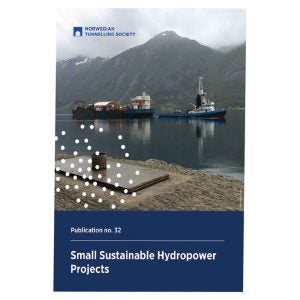Spanish contractors have made a massive impact on the tunnelling industry in recent months winning successive major tunnelling contracts and leaving their competitors wondering how on earth they are going to compete. Last month’s award of Seattle’s Alaskan Way Viaduct Replacement Tunnel design and build contract to Spanish contractor Dragados was the latest in a series of big wins for the company and for other Spanish contractors.
Spanish firms are winning on price. They more than meet the standards of any international contractor but are able to offer an unbeatable price. In more typical circumstances, a very low tender would indicate a company desperate for work. But this is not the case, even though the workload in Spain has dropped dramatically. The firms are winning jobs left, right and centre.
Late last year Spanish construction giant Ferrovial bagged the western running tunnels contract on Crossrail and Dragados won the eastern running tunnels.
One contractor, perhaps slightly bitter at losing the largest Crossrail contracts, told T&TI that the Spanish firms had left themselves with few opportunities to make money on the project and many opportunities to lose it.
A forerunner to the big push by Spanish firms to win work abroad was the East Side Access project in New York. In 2006 Dragados won the USD 430M construction contract, bringing with them their own TBMs.
Perhaps the secret lies in the structure of these companies. To enable high risk ventures in bidding low for work the companies need security. The lending banks want to see that the contractor is going to stay afloat if the gamble doesn’t pay off so they can get their money back. So where is the collateral?
Dragados is part of Grupo ACS. The group is made up of construction outfits, a long list of industrial services companies, such as port operators and maintenance firms, and has investments in other firms, such as German construction giant Hochtief. The diversity of the group helps spread its risk and offers collateral to secure it better lending terms from the banks.
Likewise, Ferrovial has its fingers in many pies other than construction. The firm secured a massive asset in its takeover of UK airport operator BAA in 2006. It hasdiversified into waste management, maintenance and airport services, such as ground handling.
Favourable lending terms and a diversified portfolio may be some of the tricks Spanish contractors are relying on to beat the competition. But, however it is being managed, the Spanish contracting empire is dominating the new major tunnelling projects in the West. To compete, rival firms may have to rethink their strategies and find ways to lower their costs.
Jon Young






